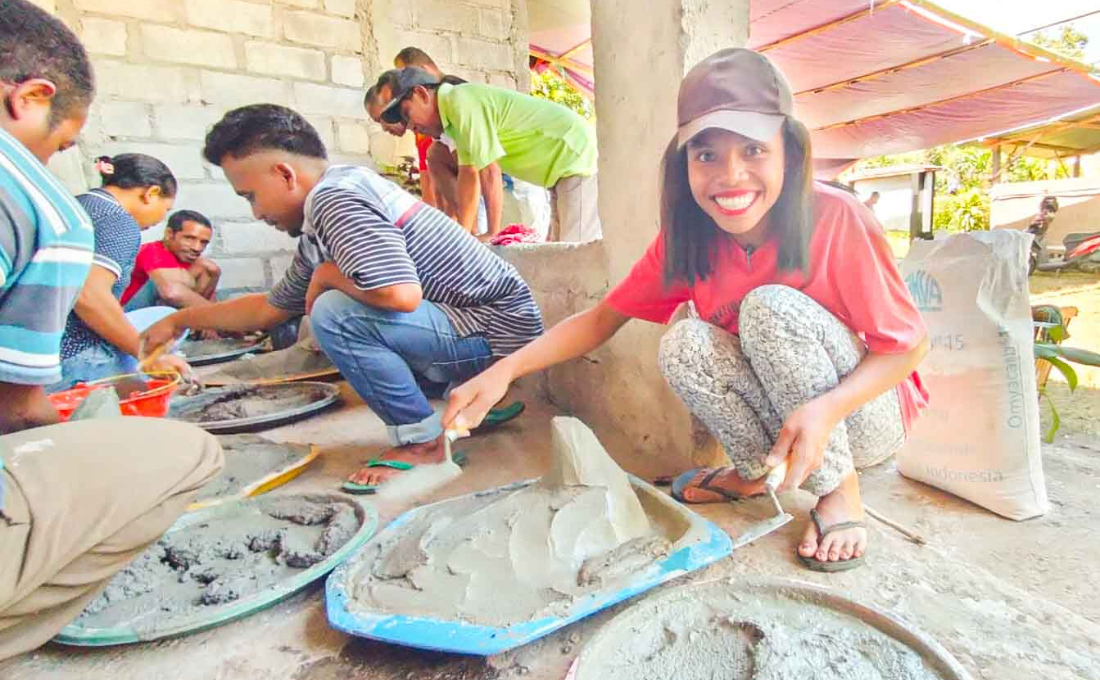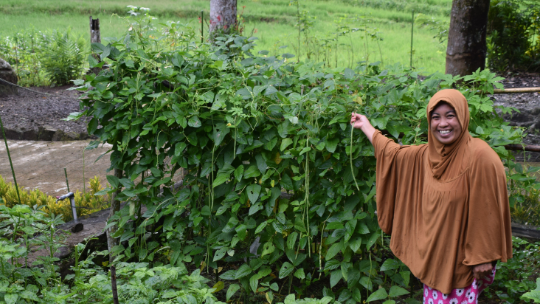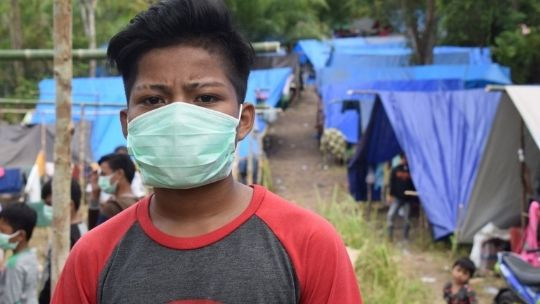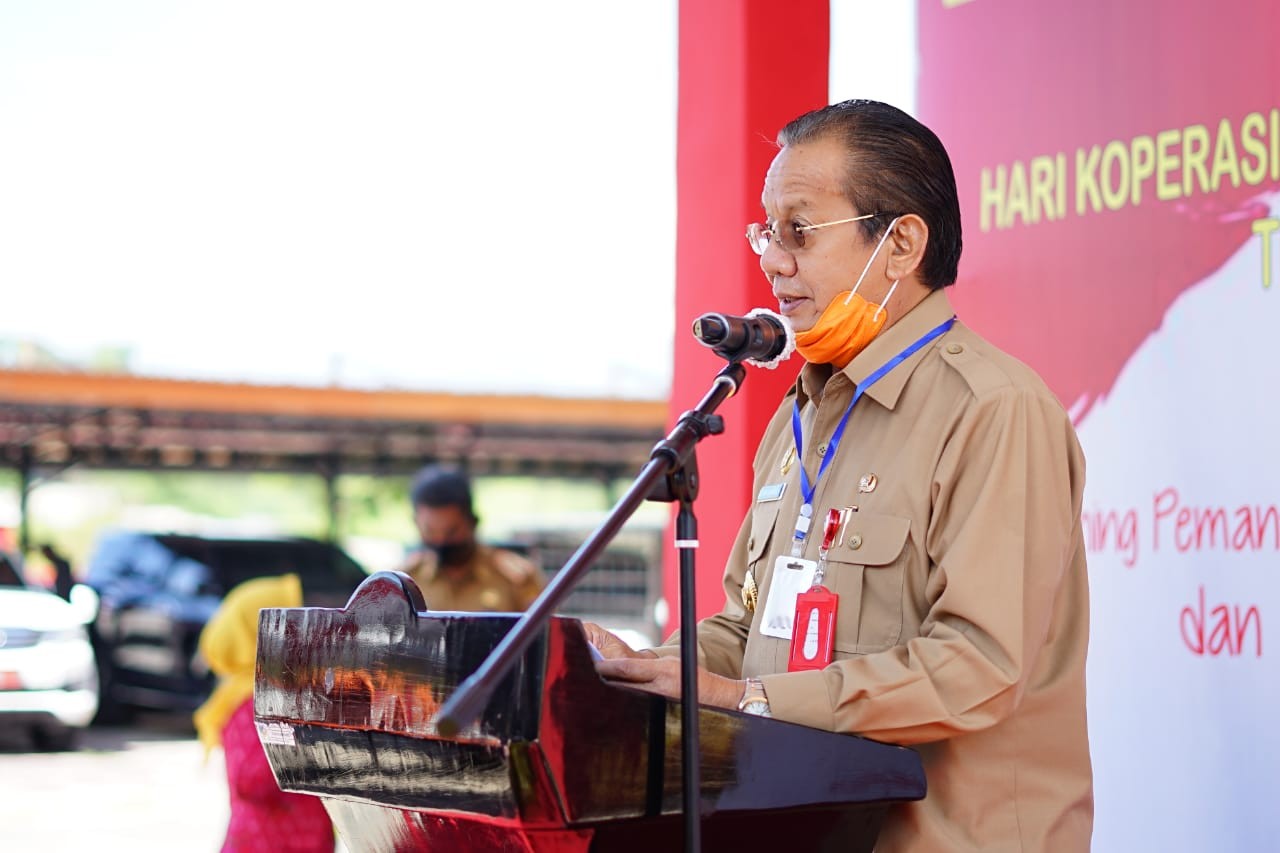The Story of the Happy Latrine

Mama Merti and Mama Rosalia proudly show off the toilet they made. Full of smiles, these two housewives show off the gooseneck latrines they made during a latrine-making training activity at a village office in Ngada Regency, East Nusa Tenggara.
Mama Merti is a young mother of two, whose husband is a farmer. On a daily basis, Mama Merti works like an ordinary housewife. Besides taking care of the children and the house, Mama Merti often helps her husband in the garden. Her first child is five years old, while the second child is only three months old.
Together with her husband and two children, Mama Merti lives in a simple house adjacent to their garden. Mama Merti said that initially their house did not have a toilet. "We used to relieve ourselves in the garden, because we didn't have a proper latrine," said Merti shyly. They have been doing this since they got married and have their own house.
Mama Rosalia had the same experience. She says, "My husband and I have to share a toilet with our in-laws and brothers-in-law, even though we have our own house. So far, we have been sharing the toilet because there is no toilet at home". As a young family, Mama Merti and Mama Rosalia could not afford to buy a toilet at the building materials store. The market price of a gooseneck latrine in Ngada Regency is around Rp 300,000. This makes it very difficult for young families in the village.
When they were invited by the village government to participate in the latrine construction training, Mama Merti and Mama Rosalia were very excited. Through this training, Mama Merti and Mama Rosalia no longer need to think about money to buy a healthy latrine. It turns out they can make their own. "We are very happy. We were taught how to make a cheaper latrine. So we also won't defecate in the garden anymore. It will be cleaner and healthier," said Mama Merti.
"I will take this toilet home. We will build our own toilet. We don't want to use the in-laws' toilet anymore," said Mama Rosalia.
This training is the result of WVI's collaboration through the Financing WASH For Universal Coverage (FinWASH4UC) and WASH Business Plan (WASH BP) projects with the village government. The training was conducted to encourage the community to change the habit of defecating in any place. In addition to training the community to build healthy and economical latrines, the activity also sparked the formation of a Sanitation Entrepreneurship Group in North Bajawa Sub-district, which consists of five groups from the five villages involved.
The village where Mama Merti and Mama Rosalia live is in the process of becoming an ODF (Open Defecation Free) village by 2023. "There are still 17 families who do not have healthy toilets. Hopefully this toilet training can help our intention to make this village ODF this year," said Matias, the Village Head.
Author: Mordekhai Lalong (FinWASH4UC Project Coordinator in Ngada District)
Editor: Mariana Kurniawati (Communication Executive)



